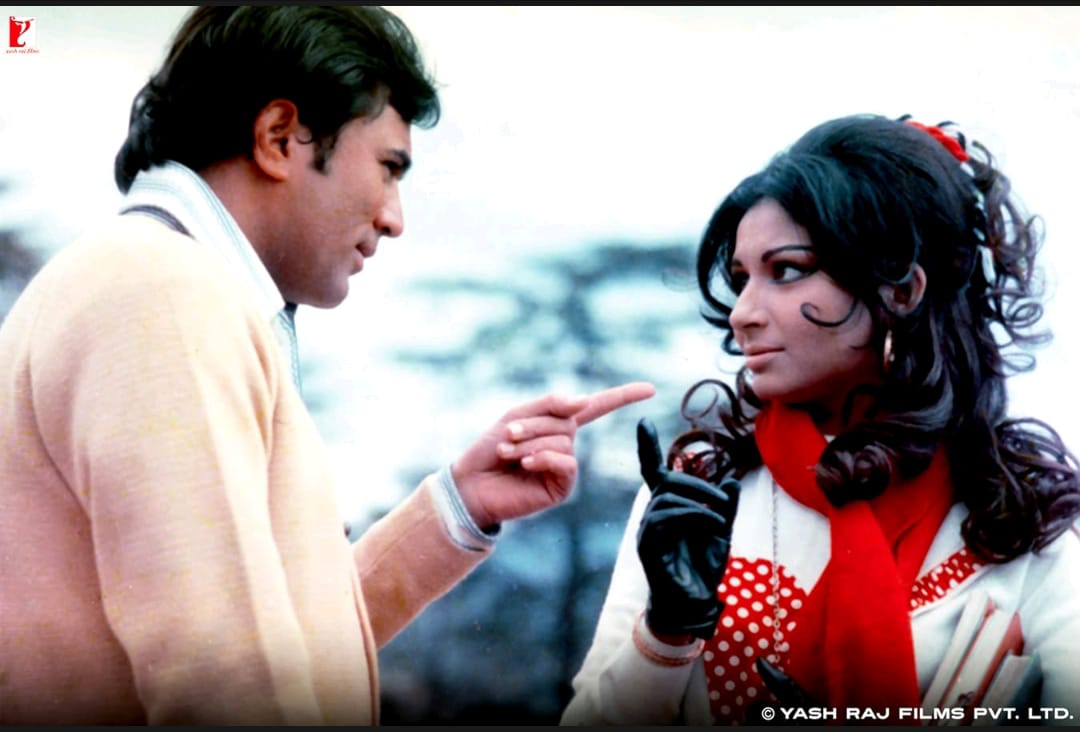India & World UpdatesHappeningsBreaking News
Yash Chopra’s Daag, more than just a film, writes Shanku Sharma

//Shanku Sharma//
Yash Chopra’s Daag: A Poem of Love stands as a quintessential film in the annals of Indian cinema. Released in 1973, this Bollywood classic is not just a film but a tapestry of emotions, melodrama, and romance, underscoring Chopra’s prowess in weaving intricate human relationships into compelling narratives. As Chopra’s directorial venture under the banner of his newly established production house, Yash Raj Films, Daag marked a turning point in his illustrious career.
The story revolves around the character of Sunil (played by Rajesh Khanna), a man of integrity who becomes entangled in a tragic love story. Sunil, deeply in love with Sonia (played by Sharmila Tagore), finds his life upended when he accidentally kills a man in a bid to protect Sonia from being assaulted. Fleeing from the law, Sunil’s life takes a further twist when he is presumed dead. This leads to Sonia being left alone, pregnant, and facing societal ostracization.
In a twist of fate, Sunil adopts a new identity, turning into Sudhir, and builds a new life. He marries Chandni (played by Rakhee), who is unaware of his past. The narrative weaves through the complexities of Sunil’s dual life, his undying love for Sonia, and his new-found responsibilities towards Chandni. The film poignantly captures the conflict between love and duty, and the sacrifices made in the pursuit of happiness.
Rajesh Khanna’s portrayal of Sunil/Sudhir is a testament to his versatility and command over his craft. His ability to convey the torment of a man torn between his past and present is both heartfelt and convincing. Sharmila Tagore’s Sonia exudes grace and resilience, embodying the struggle of a woman fighting societal norms. Rakhee, as Chandni, adds depth to the narrative, her performance reflecting the innocence and strength of a woman unaware of her husband’s past.
The supporting cast, including Prem Chopra and Madan Puri, deliver commendable performances, adding layers to the story and enhancing the overall impact of the film.
Yash Chopra’s direction in “Daag” is both nuanced and visionary. His ability to depict the complexity of human emotions and relationships with such finesse sets him apart as a master storyteller. The film’s pacing, interspersed with moments of high drama and tender romance, keeps the audience engaged throughout.
The cinematography by Kay Gee captures the scenic beauty of the locations, with lush landscapes and picturesque backdrops that serve as a perfect canvas for this tale of love and loss. The use of lighting and camera angles enhances the emotional depth of the film, making it a visual delight.
The music of Daag, composed by Laxmikant-Pyarelal with lyrics by Sahir Ludhianvi, is one of its strongest pillars. Songs like “Mere Dil Mein Aaj Kya Hai” and “Ni Main Yaar Mana Ni” are evergreen hits that continue to resonate with audiences. The soulful melodies and poignant lyrics complement the film’s narrative, adding a lyrical quality to the storytelling.
Daag: A Poem of Love is more than just a film; it is a cultural artifact that reflects the sensibilities of its time while transcending temporal boundaries. The film’s exploration of themes such as love, sacrifice, and societal judgement remains relevant even today. It established Yash Chopra as a force to be reckoned with in Indian cinema and set the stage for the many classics that he would go on to create.
For Rajesh Khanna, Sharmila Tagore, and Rakhee, Daag is a milestone that showcased their acting prowess and cemented their status as icons of Indian cinema. The film’s commercial success and critical acclaim are a testament to its enduring appeal.
In conclusion, Yash Chopra’s Daag is a poetic journey that delves into the complexities of love and morality. It is a film that touches the heart and stirs the soul, reminding us of the timeless nature of true cinematic art.




